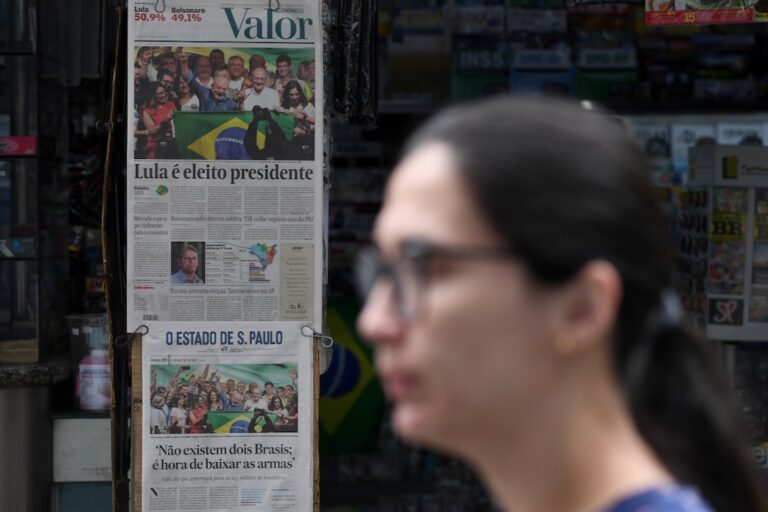RSF is reinforcing its monitoring of press freedom violations in Brazil's Amazonian region, where journalistic freedom is crucial to combatting climate change.
This statement was originally published on rsf.org on 2 February 2023.
Reporters Without Borders (RSF) is reinforcing its monitoring of press freedom violations in Brazil’s Amazonian region, where journalistic freedom is crucial to combatting climate change. Reliable information about what is happening in both the remotest parts of the world’s biggest tropical forest and its urban centres is essential for developing strategies for preserving life on our planet.
The June 2022 murders of British journalist Dom Phillips and Bruno Pereira, a Brazilian expert on the Amazon’s Indigenous, drew the world’s attention to the risk runs by those who shed light on rights violations in the Brazilian Amazon. But press freedom is violated every day in this region, and in a variety of ways that cannot be measured solely by the number of murdered journalists.
On the one hand, journalists are challenged by the lack of adequate infrastructure and resources in a political environment that is polarised and steeped in disinformation. On the other, they are subjected to economic and judicial pressures, threats, physical attacks and other forms of intimidation that systematically aim to silence those who denounce abuses and violations of human, social and environmental rights.
“The threats and the different forms of violence against the media prevent the public from knowing the reality in the region, including the crimes committed against the forest at the planet’s expense. The Amazon’s crucial importance for environmental protection worldwide and the difficulties in obtaining reliable information, especially in remote areas, require a targeted effort to monitor the obstacles to journalism.”
Artur Romeu, Director of RSF’s Latin America bureau
To this end, RSF’s Latin America bureau is launching an “Amazonian Press Freedom Violations Observatory” with the support of the embassy of the Netherlands in Brazil. This project’s goal is to map violations of press freedom and the right to information in the Brazilian Amazon until June 2024.
The data gathered by the Observatory will be published in the form of maps, reports and other kinds of content and will serve to reinforce advocacy and assistance to journalists, information providers and media outlets that are in danger because of their activities in the region.
“As well as documenting specific cases of violence and abuses, we aim to analyse trends and understand structural obstacles to press freedom and the right to information in the Amazon,” Romeu said. “And by means of periodic reports, we intend to shed a broader light on recurring problems linked to the lack of independence and pluralism, which restrict the flow of reliable, independently-reported information about the region.”
As well as the work of investigating violations, to be carried out by two journalists based in the Amazon, the project has also created an online form where anyone can report threats, attacks and acts of intimidation against journalists and media outlets.



